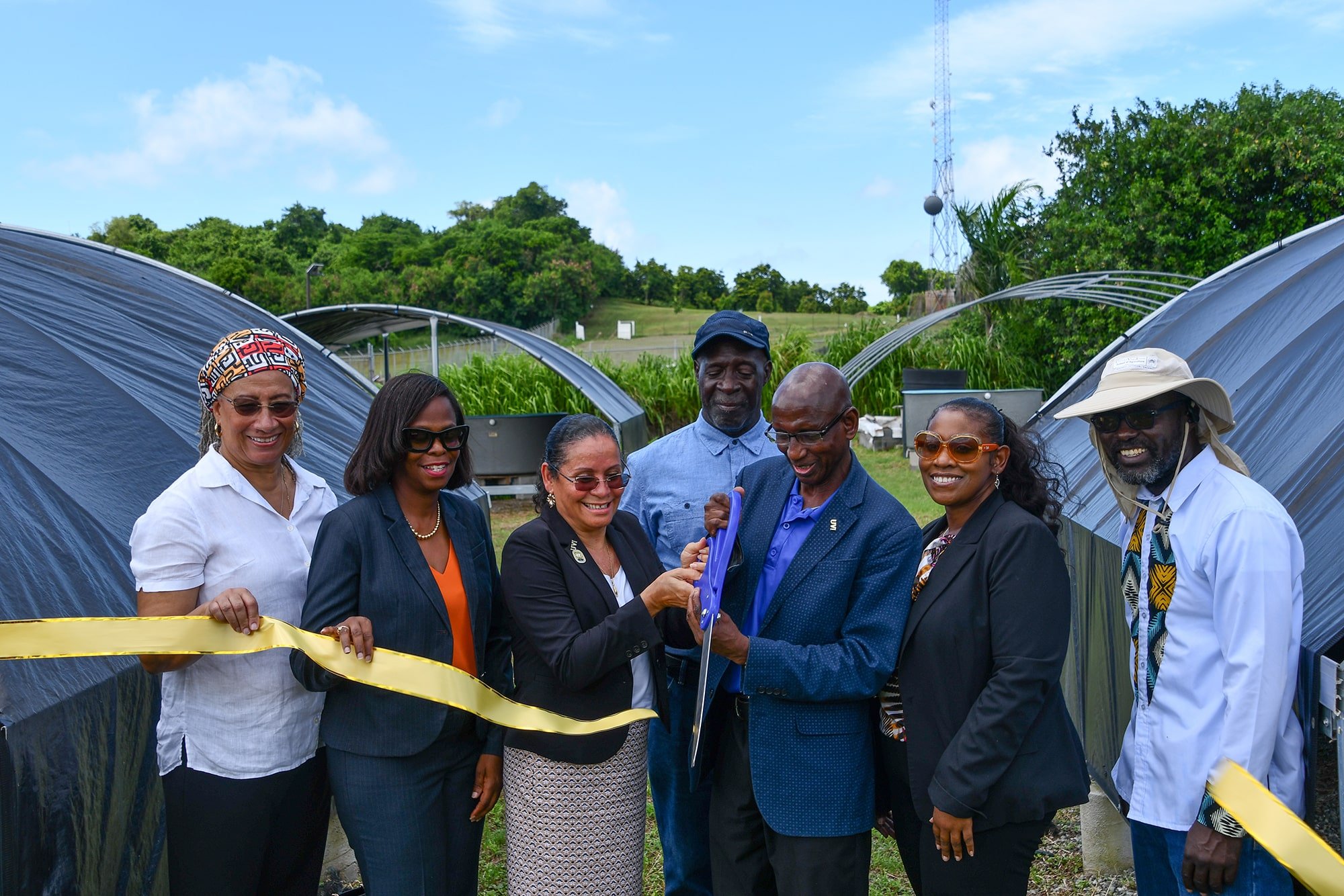Key Takeaways:
- The University of the Virgin Islands (UVI) Agricultural Experiment Station celebrated the relaunch of its Aquaponics and Small Ruminant Livestock Facilities.
- The facilities were damaged by Hurricanes Irma and Maria in 2017, halting research activities.
- The Aquaponics Facility will focus on sustainable farming methods and support local agriculture.
- The Small Ruminant Livestock Facility will resume research in animal science, particularly focusing on sheep and goats.
- These projects are part of UVI’s mission as a land-grant institution to address public needs through research, teaching, and extension.
UVI Celebrates Relaunch of Aquaponics and Small Ruminant Livestock Facilities
The University of the Virgin Islands Agricultural Experiment Station marked the significant relaunch of its Aquaponics and Small Ruminant Livestock Facilities with ribbon-cutting ceremonies held last week at the Albert A. Sheen Campus on St. Croix. These facilities, which suffered extensive damage from the category five Hurricanes Irma and Maria in 2017, had brought research activities to a standstill. Their reopening signifies a new chapter in UVI's commitment to agricultural research and education.
Aquaponics Facility
Dr. Usman Adamu, UVI Dean and Director of the School of Agriculture, emphasized the importance of the Aquaponics Facility, stating, “Having this facility back in operation means that full research work will resume at the Agricultural Experiment Station in aquaponics, an area that truly puts UVI on the global map.” Dr. Adamu highlighted that the facility supports UVI's mission as a land-grant institution, which involves conducting research, teaching, and extension to address public needs.
Dr. Adamu also acknowledged the challenges faced by farmers in the Virgin Islands, such as natural disasters, labor shortages, and high costs of animal feed. He expressed optimism that the new aquaponics facility, supported by a team of experts, would benefit local and regional communities. The University allocated over $600,000 for the repair, primarily sourced from Disaster Recovery Funds, with Mence Construction handling the renovations.
Adrienne Williams-Octalien, Director of the Office of Disaster Recovery, joined the celebration, emphasizing the significance of the project. “The mission and the vision of disaster recovery is to rebuild a resilient Virgin Islands. That is what this project represents to me—resiliency,” Williams-Octalien said. She stressed the importance of food conservation and sustainability as crucial steps in disaster preparedness.
Dr. Henry Awika, Interim Assistant Director and Research Assistant Professor of Horticulture and Aquaculture, led participants on a tour of the facility. He noted that completing the facility would take approximately three to four months, with funding already secured. The renovated aquaponics facility is expected to produce tilapia, using nutrient-rich waste from the fish to support farming. The facility features six aquaponics stations and can accommodate 600 fish at a time.
Small Ruminant Livestock Facility
The ribbon-cutting ceremony for the Small Ruminant Livestock Facility (SRLF) was welcomed by Sue Lakos, UVI Animal Science Research Analyst. The new facility includes three steel frame structures: a barn office, a hay barn, a scale house, and sheep pens and pastures. The SRLF houses two breeds of sheep, the St. Croix White Hair Sheep and the Dorper Cross Breed Sheep.
Construction of the facility began in March 2022, with Mence Construction undertaking the project at a cost of over $650,000, funded largely by disaster recovery funds. Dr. Adamu underscored the importance of the facility, stating, “Having this facility means that research work will resume at the Agricultural Experiment Station in animal science with small ruminant livestock, meaning sheep and goats.”
Research at UVI’s School of Agriculture encompasses animal sciences, community development, agricultural economics, soil sciences, and the profitability of raising sheep. The focus includes identifying the best breeds to thrive in the territory, with the aim of positively impacting local farmers.
Dr. Adamu expressed enthusiasm about the new facility, stating, “We are so excited to have this new facility. Farmers in our community face so many different challenges. We are hoping that with this new facility and a team of scientists and experts, the University is ready to help accomplish our land-grant mission in animal science to positively impact farmers in the territory and the region.”
Image provided by The UVI


